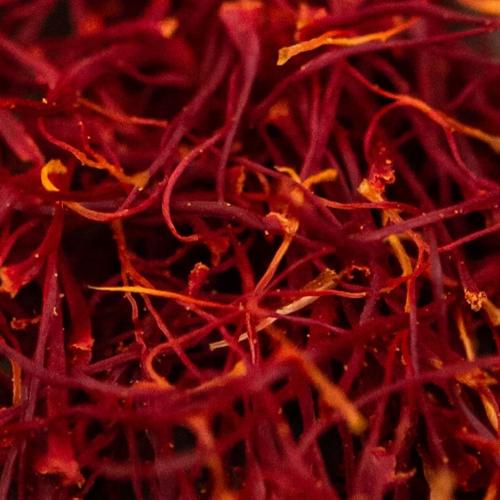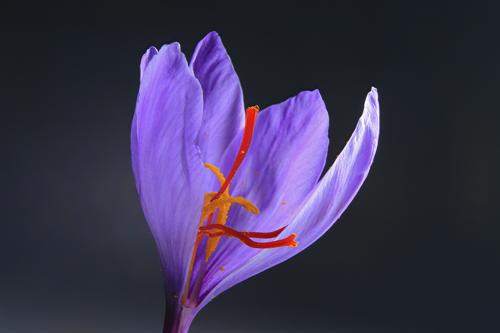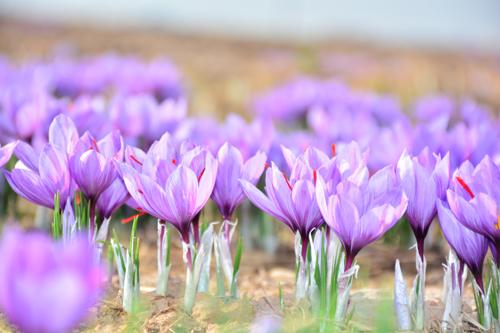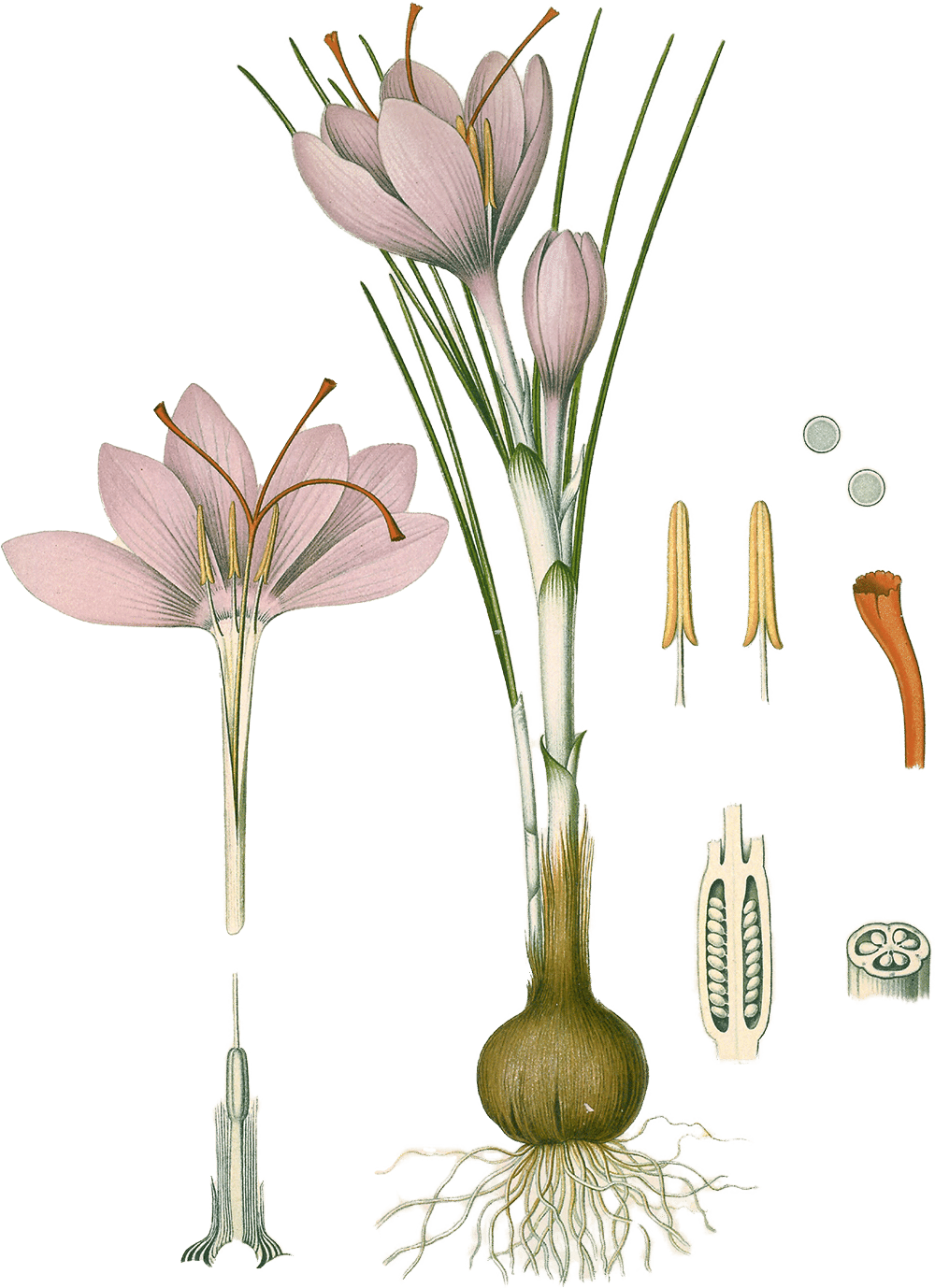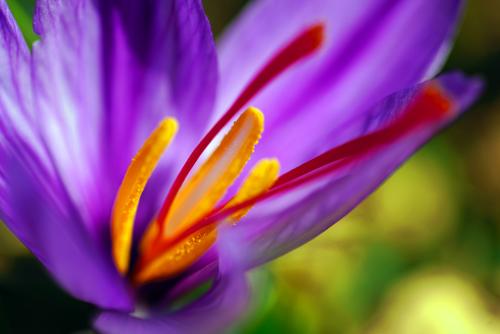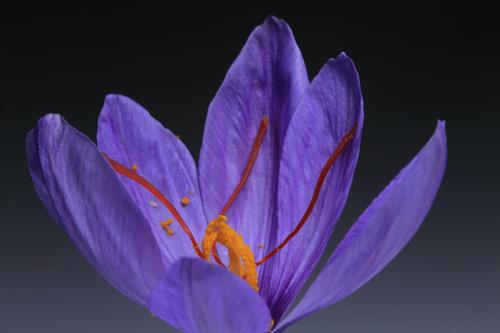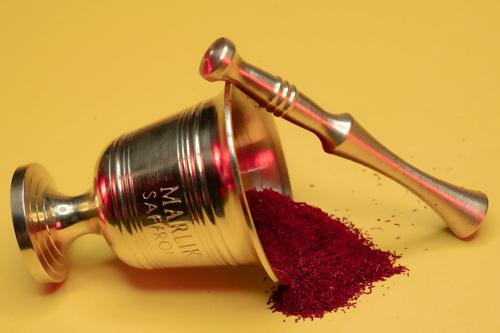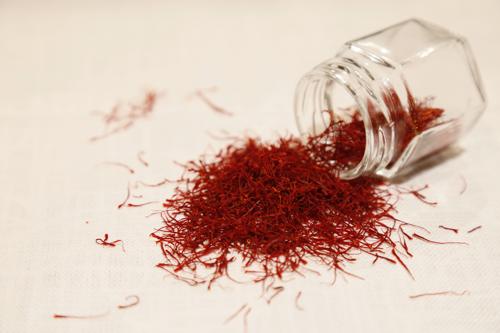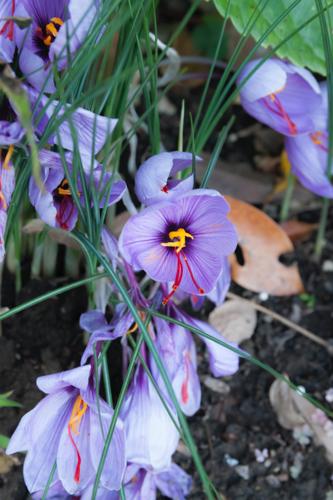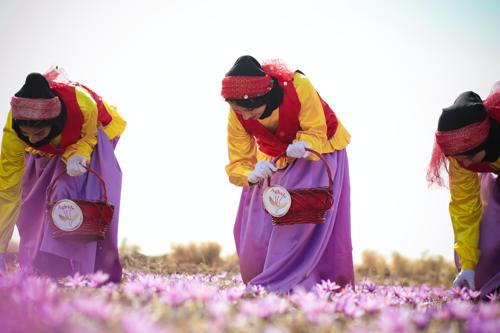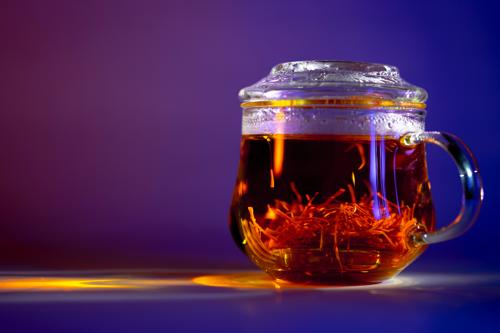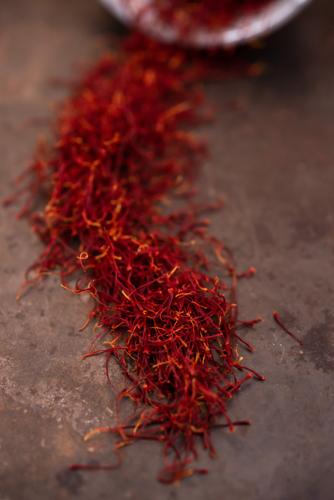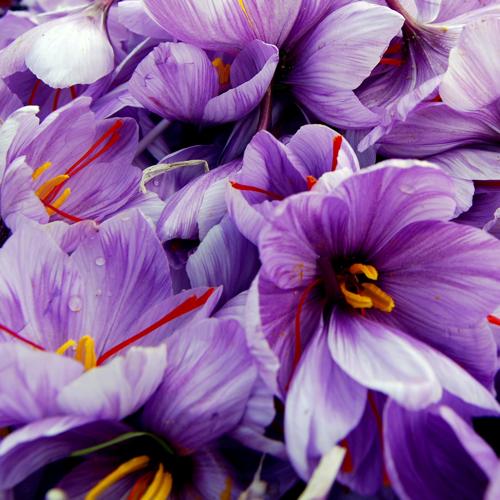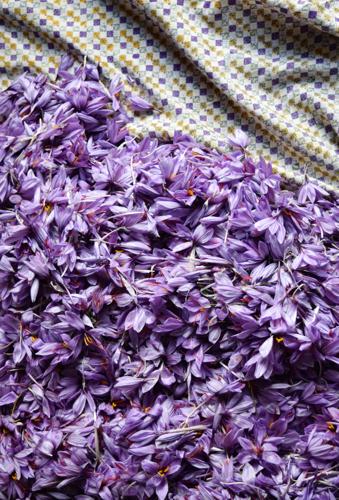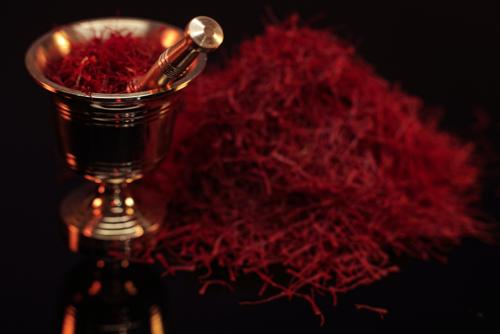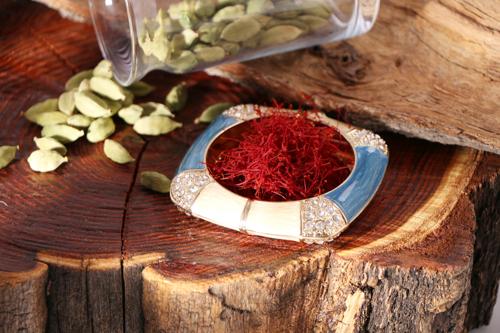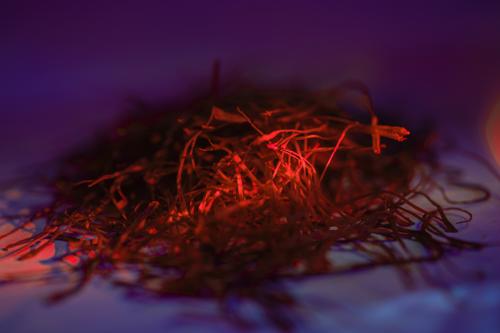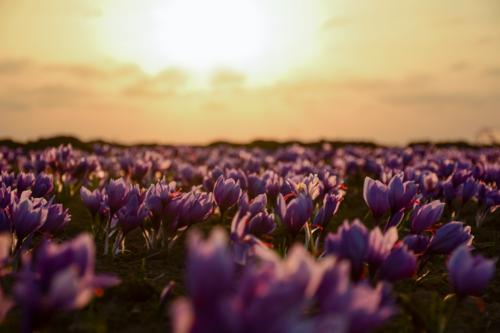Saffron
The stigmas or styles of the saffron crocus flower; stamen of Crocus sativus, also known as saffron.
English: saffron · Hungarian: sáfrány · Arabic: زعفران · Hindi: केसर · Chinese: 藏紅花
Overview
| item | saffron |
|---|---|
| taxon | Crocus sativus L. |
| family | Iridaceae |
| regions | Southeastern Europe |
| continents | Europe |
| part | stigma (style) |
| cultivation | Iran; Spain; Kashmir; etc. |
| botanical_database | POWO; GBIF; TROP; EOL |
SAFFRON is a culinary spice, and dye, cultivated for its stigma (style). It is yielded from the plant Crocus sativus L., a tuberous geophyte in the Iridaceae family, growing in subtropical biome, with a native range of a cultigen from Greece.1
It is used primarily in paella, bouillabaise, rice, tagine, fevers. Its aroma is described as pungent, bitter, with a heat index of 0.2
See more in ( Citation: POWO, 2024 POWO (2024). Plants of the world online. Facilitated by the Royal Botanic Gardens, Kew. Retrieved from http://www.plantsoftheworldonline.org/ ; Citation: Petruzzello, 2021 Petruzzello, M. (2021). List of herbs and spices. Retrieved from https://www.britannica.com/topic/list-of-herbs-and-spices-2024392 ; Citation: Wyk, 2014 Wyk, B. (2014). Culinary herbs and spices of the world. University of Chicago Press, joint publication with the Royal Botanic Gardens, Kew. ; Citation: Dalby, 2000 Dalby, A. (2000). Dangerous tastes: the story of spices. University of California Press. ; Citation: Hill, 2004 Hill, T. (2004). The contemporary encyclopedia of herbs and spices: Seasonings for the global kitchen. J. Wiley. ; Citation: Anderson, 2023 Anderson, I. (2023). The history and natural history of spices: the 5000-year search for flavour. The History Press. )
Illustration of Crocus sativus from Köhler’s Medizinal-Pflanzen ( Citation: 1887 Köhler, H. (1887). Köhler’s Medizinal-Pflanzen in naturgetreuen Abbildungen mit kurz erläuterndem Texte: Atlas zur Pharmacopoea germanica, austriaca, belgica, danica, helvetica, hungarica, rossica, suecica, Neerlandica, British pharmacopoeia, zum Codex medicamentarius, sowie zur Pharmacopoeia of the United States of America. Franz Eugen Köhler. Retrieved from https://www.biodiversitylibrary.org/bibliography/623 ) II 164.
Distribution
Native and introduced habitats of Crocus sativus3
Native areas: Greece
Introduced areas: Czechoslovakia, Spain, Italy, Morocco, Iran, Turkey, Pakistan, West Himalaya
Gallery
Bibliography
- Anderson (2023)
- Anderson, I. (2023). The history and natural history of spices: the 5000-year search for flavour. The History Press.
- Dalby (2000)
- Dalby, A. (2000). Dangerous tastes: the story of spices. University of California Press.
- Hill (2004)
- Hill, T. (2004). The contemporary encyclopedia of herbs and spices: Seasonings for the global kitchen. J. Wiley.
- Köhler (1887)
- Köhler, H. (1887). Köhler’s Medizinal-Pflanzen in naturgetreuen Abbildungen mit kurz erläuterndem Texte: Atlas zur Pharmacopoea germanica, austriaca, belgica, danica, helvetica, hungarica, rossica, suecica, Neerlandica, British pharmacopoeia, zum Codex medicamentarius, sowie zur Pharmacopoeia of the United States of America. Franz Eugen Köhler. Retrieved from https://www.biodiversitylibrary.org/bibliography/623
- Petruzzello (2021)
- Petruzzello, M. (2021). List of herbs and spices. Retrieved from https://www.britannica.com/topic/list-of-herbs-and-spices-2024392
- POWO (2024)
- POWO (2024). Plants of the world online. Facilitated by the Royal Botanic Gardens, Kew. Retrieved from http://www.plantsoftheworldonline.org/
- Wyk (2014)
- Wyk, B. (2014). Culinary herbs and spices of the world. University of Chicago Press, joint publication with the Royal Botanic Gardens, Kew.
Medicinal Spices Exhibit. (2002). UCLA Biomedical Library: History & Special Collections. https://unitproj.library.ucla.edu/biomed/spice/index.cfm?spicefilename=taste.txt&itemsuppress=yes&displayswitch=0 ↩︎
